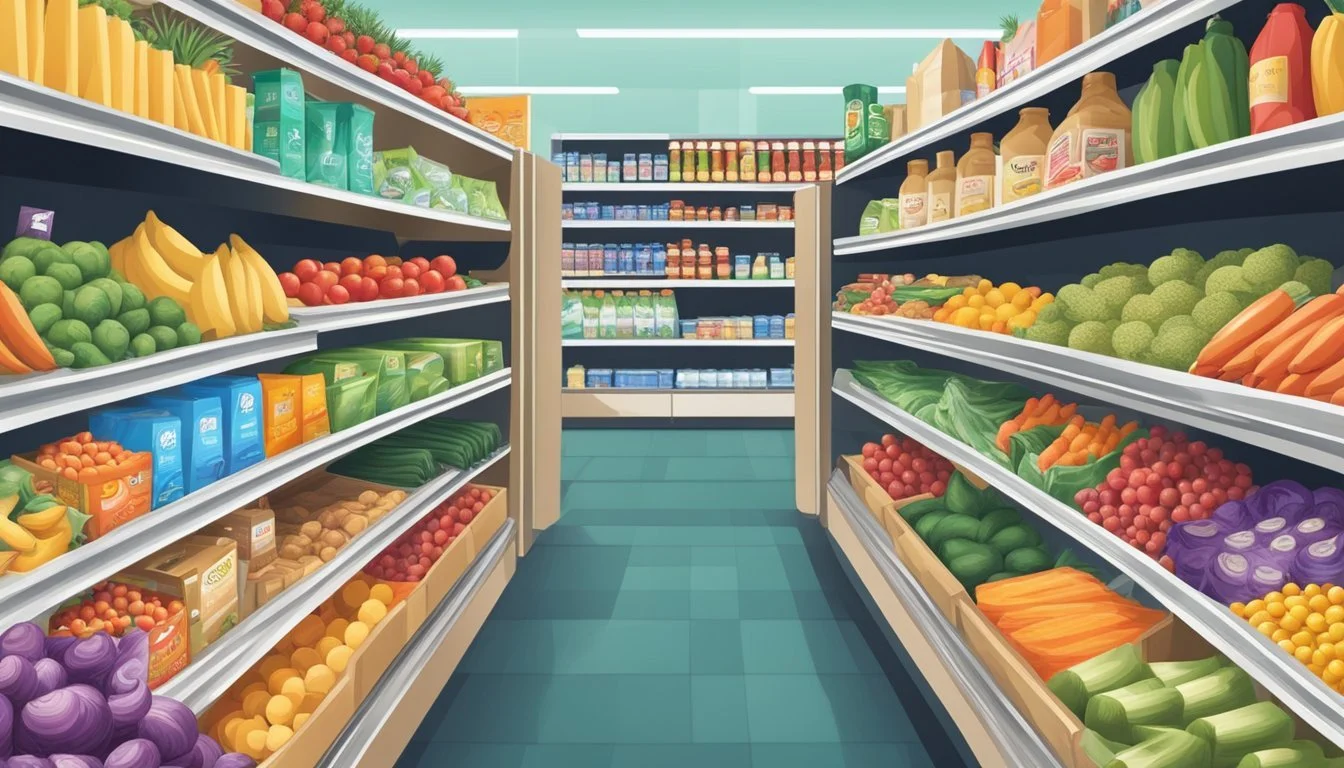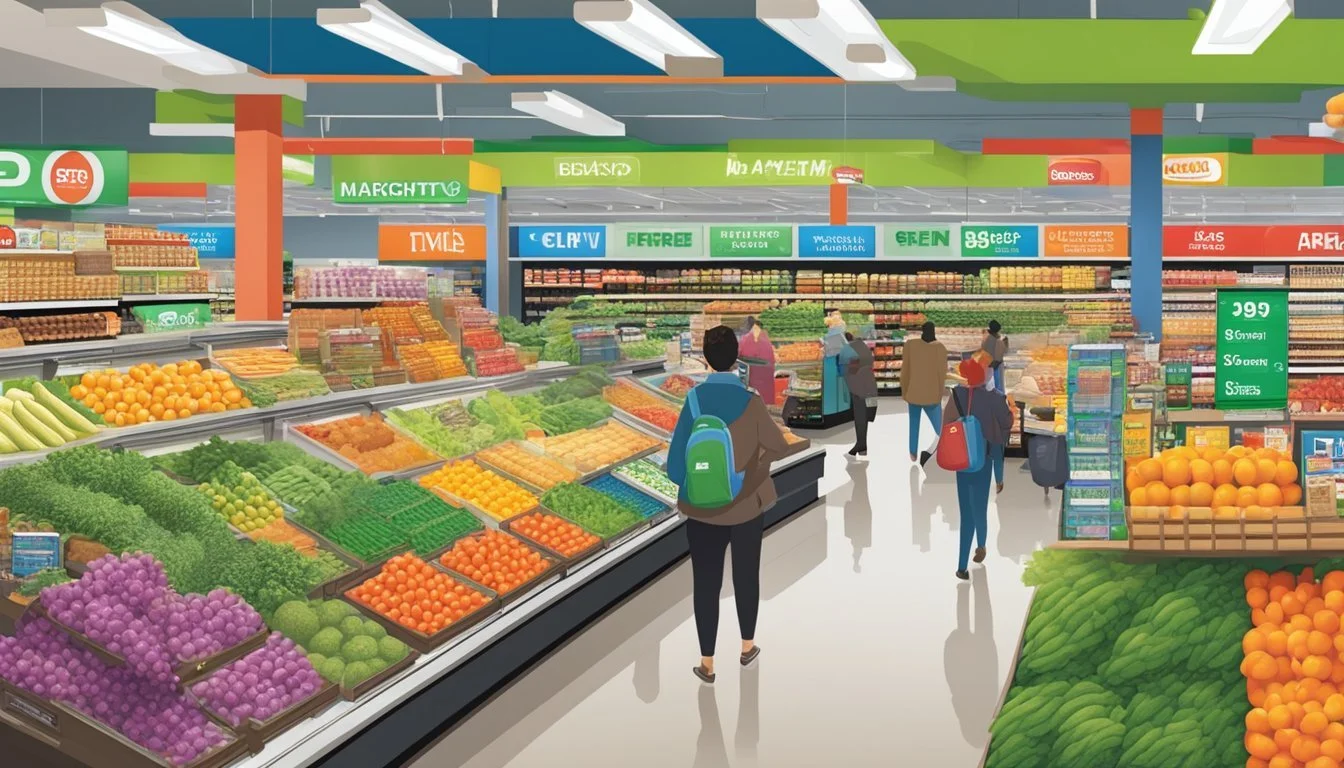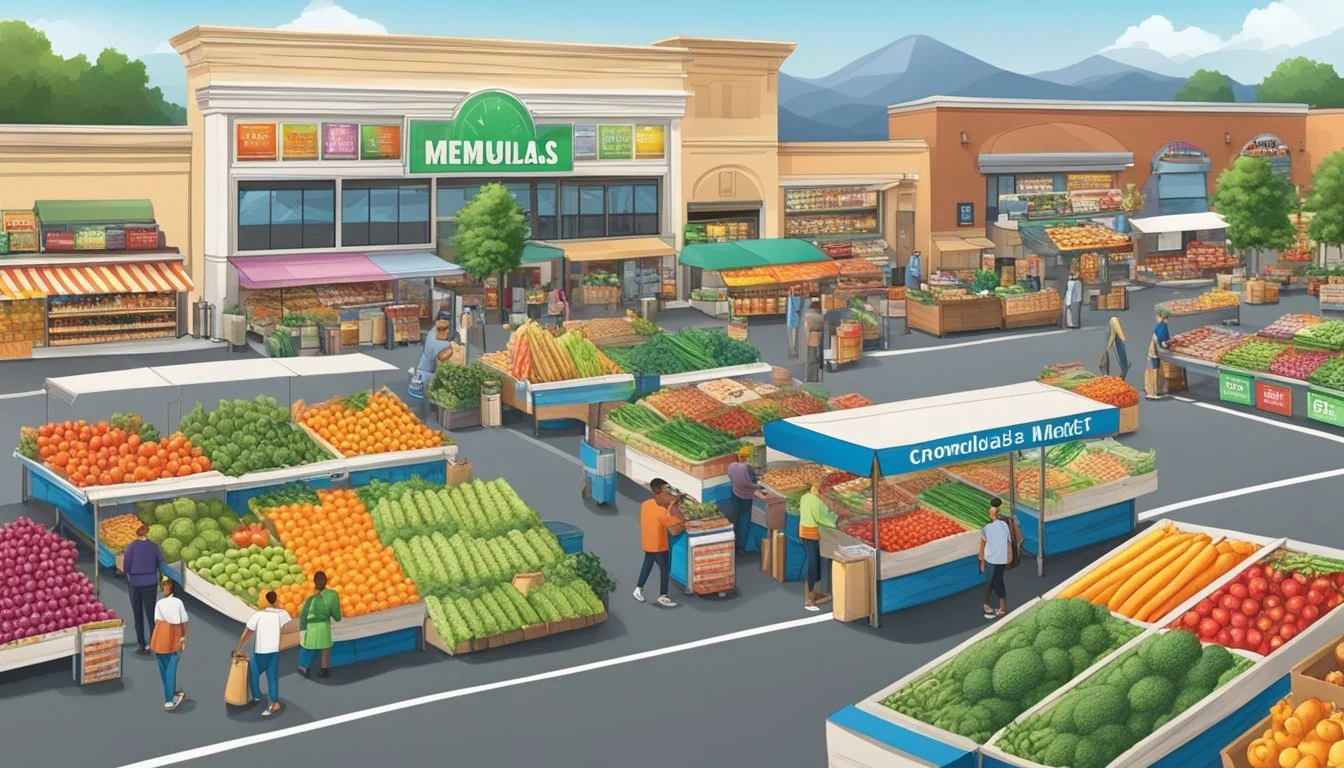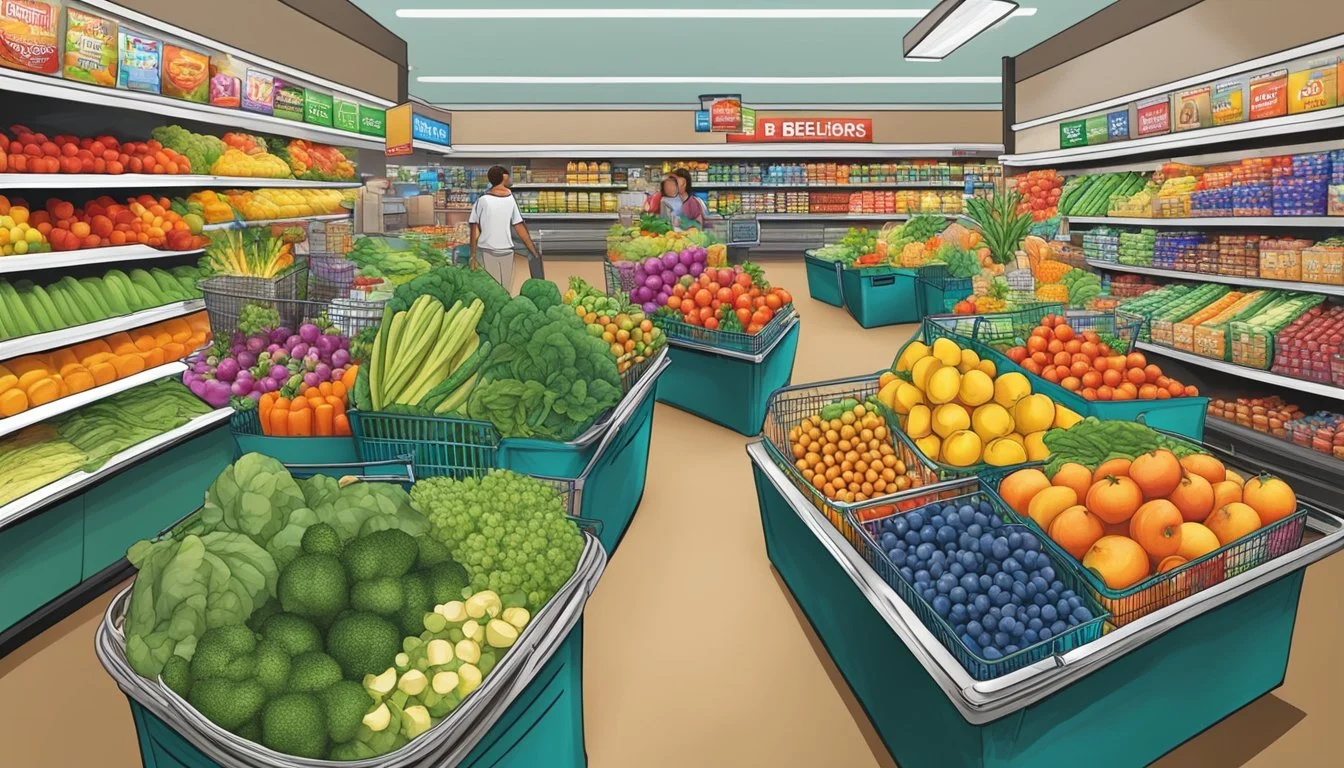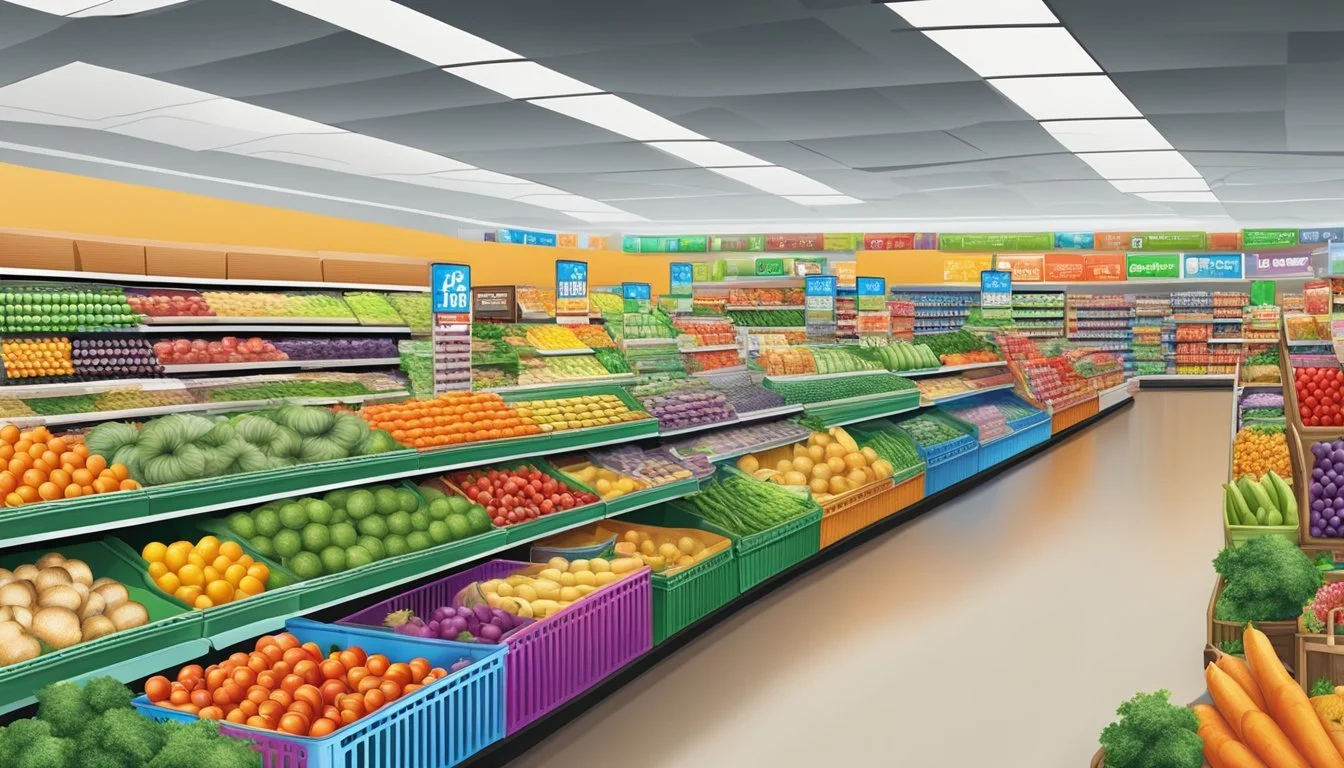Demoulas Market Basket vs Five Below
Comparing Prices, Selection, and Shopping Experience
Demoulas Market Basket and Five Below are two distinct retail chains that serve different consumer needs. Market Basket is a well-established grocery store chain primarily located in New England, known for its low prices and loyal customer base. Five Below, on the other hand, is a discount store that sells a variety of products priced at $5 or less.
Market Basket consistently outperforms other grocery chains in terms of affordability and customer satisfaction. A 2022 study by consumer data firm Dunnhuby ranked Market Basket as the top grocery store among over 60 chains, considering factors such as affordability and item quality. This regional supermarket has built a strong reputation for offering quality products at competitive prices.
While Five Below is not a traditional grocery store, it does offer some food and beverage items. However, its focus is on providing a wide range of discount products across various categories. The comparison between these two retailers is not straightforward due to their different business models and product offerings.
History and Background
Demoulas Market Basket and Five Below have distinct origins rooted in family entrepreneurship and innovative retail concepts. Both companies have experienced significant growth and expansion over the decades.
Origin of Demoulas Market Basket
Demoulas Market Basket traces its beginnings to 1917 in Lowell, Massachusetts. Greek immigrants Athanasios and Efrosini Demoulas opened a small grocery store specializing in fresh lamb.
The business thrived despite the challenges of the Great Depression. In 1954, brothers Telemachus and George Demoulas purchased the store from their parents for $15,000.
Under their leadership, the company expanded rapidly across New England. The Demoulas family maintained ownership, with Arthur T. Demoulas and Arthur S. Demoulas later becoming key figures in the business.
A family feud erupted in the 1990s, culminating in widespread employee protests in 2014. This dispute temporarily disrupted operations but was eventually resolved.
Development of Five Below
Five Below was founded in 2002 by David Schlessinger and Tom Vellios in Philadelphia, Pennsylvania. The concept was born from the idea of creating a store where teens and pre-teens could shop independently.
The company's name reflects its original pricing strategy: all items sold for $5 or less. This unique approach quickly gained popularity among young shoppers and their parents.
Five Below experienced rapid growth, expanding from a single store to over 1,000 locations across the United States. The company went public in 2012, further fueling its expansion.
Unlike Market Basket, Five Below is not a family-owned business. It has adapted its merchandise mix over time to include items priced up to $10, maintaining its appeal to budget-conscious consumers.
Business Model and Strategy
Market Basket and Five Below employ distinct strategies to attract customers and maximize profitability. Their approaches to pricing, product selection, and customer service shape their unique positions in the retail landscape.
Market Basket's Approach
Market Basket focuses on offering low prices and high-quality products to build customer loyalty. The company maintains tight control over operational costs, allowing it to pass savings on to shoppers. Market Basket's strategy emphasizes employee satisfaction, with generous pay and benefits fostering a dedicated workforce.
The chain's "More for Your Dollar" philosophy extends beyond pricing to include exceptional customer service. Market Basket stores are known for their clean, well-stocked shelves and friendly staff. This approach has created a loyal customer base that values affordability without sacrificing quality.
Market Basket's business model revolves around high volume sales with slim profit margins. The company leverages its buying power to negotiate favorable terms with suppliers, further reducing costs.
Five Below's Market Positioning
Five Below targets a different segment of the retail market with its unique price point strategy. The company sells a variety of products priced at $5 or less, appealing to budget-conscious shoppers and impulse buyers.
Five Below's business model centers on rapid expansion and carefully curated product selection. The company focuses on trendy items across various categories, including tech accessories, beauty products, and seasonal goods. This diverse mix attracts a wide range of customers, particularly younger shoppers.
The retailer's strategy relies on creating an engaging shopping experience with frequently changing merchandise. Five Below stores are designed to be visually appealing and easy to navigate, encouraging customers to explore and make impulse purchases.
Five Below keeps operational costs low by maintaining smaller store footprints and efficient inventory management. This allows the company to offer competitive prices while maintaining profitability.
Product and Service Offering
Market Basket and Five Below offer distinct product ranges catering to different consumer needs. Market Basket focuses on groceries and household essentials, while Five Below specializes in affordable merchandise across various categories.
Market Basket's Product Range
Market Basket provides a comprehensive selection of groceries and everyday items. Their stores stock fresh produce, meats, dairy products, and baked goods. The supermarket chain emphasizes quality and affordability in its offerings.
Market Basket carries national brands alongside its own private label products. Their prepared foods section offers ready-to-eat meals and hot food items. The chain is known for its competitive pricing on staple items like milk, bread, and eggs.
Many Market Basket locations feature full-service deli and seafood counters. The stores also carry household goods, health and beauty products, and basic clothing items.
Five Below's Merchandise Assortment
Five Below targets a younger demographic with its diverse range of low-priced items. The store's inventory includes toys, games, tech accessories, beauty products, and home decor.
Most products at Five Below are priced at $5 or less. The chain frequently rotates its stock to include seasonal items and trendy merchandise. Popular categories include candy, party supplies, and small electronics.
Five Below does not offer groceries or fresh food items. Instead, they focus on discretionary purchases and impulse buys. The store's selection often includes licensed products featuring popular characters and brands.
Five Below's "Ten Below" section in some stores features items priced between $6 and $10, expanding their product range slightly upmarket.
Price Comparison and Affordability
Market Basket and Five Below employ distinct pricing strategies to attract budget-conscious shoppers. Both stores aim to offer value, but their approaches differ significantly in terms of product selection and target markets.
Market Basket's Pricing Strategy
Market Basket has gained a reputation for exceptional affordability. In a 2022 study by Dunnhuby comparing over 60 grocery chains, Market Basket emerged as the top performer in handling inflation while maintaining quality. Their prices were found to be approximately 18% lower than the average across all stores surveyed. This translates to potential annual savings of over $2,300 for a family spending $250 weekly on groceries.
Market Basket's success stems from its focus on offering competitive prices on a wide range of grocery items, including national brands and everyday essentials. The chain's pricing strategy allows customers to save on their entire shopping list, not just select products.
Five Below's Cost Considerations
Five Below operates on a different model, focusing on non-grocery items priced at $5 or less. While not a traditional grocery store, Five Below offers snacks, beverages, and some pantry items at budget-friendly prices. Their strategy revolves around providing trendy and fun products at extremely low price points.
Five Below's limited grocery selection means customers can't rely on it for all their food needs. However, it can be an excellent option for specific items like candy, drinks, and packaged snacks. The store's $5-and-under concept appeals to bargain hunters and younger shoppers looking for affordable treats and impulse buys.
Unlike Market Basket, Five Below doesn't compete directly with full-service grocery stores on staple items or fresh produce. Its cost considerations focus on maintaining the $5 price ceiling while offering products that appeal to its target demographic.
Consumer Experience
Market Basket and Five Below offer distinct consumer experiences tailored to their target audiences. Each retailer emphasizes different aspects of customer engagement and store atmosphere to create unique shopping environments.
Customer Engagement at Market Basket
Market Basket takes pride in its old-fashioned approach to customer service. The New England-based chain focuses on personal interactions between staff and shoppers. Employees often know regular customers by name, fostering a sense of community within stores.
The company's "More for Your Dollar" motto extends beyond pricing. Market Basket invests in well-staffed departments, ensuring customers can easily find assistance. This commitment was evident during the 2014 employee protests, where workers demonstrated loyalty to the company's customer-centric culture.
Market Basket stores maintain a no-frills environment. The emphasis is on product selection and value rather than fancy displays. This approach resonates with budget-conscious shoppers in the Boston area and beyond.
Five Below's Store Atmosphere
Five Below creates a vibrant, energetic shopping experience aimed at younger consumers. Stores feature bright colors, pop music, and trendy merchandise displays. The layout is designed to encourage exploration and impulse purchases.
Technology plays a key role in Five Below's customer engagement strategy. The retailer uses digital price tags and interactive kiosks to enhance the shopping experience. These tools allow for quick price changes and provide product information to tech-savvy customers.
Five Below's stores are organized into distinct sections, each focused on specific price points or product categories. This clear layout makes it easy for shoppers to navigate and find items within their budget. The fun, upbeat atmosphere encourages customers to browse and discover new products.
Employee Relations
Market Basket and Five Below take different approaches to managing their workforce. These strategies impact employee satisfaction, loyalty, and overall company culture.
Market Basket's Employee Management
Market Basket's employee relations are characterized by strong loyalty and a family-like atmosphere. The company's CEO, Arthur T. Demoulas, is known for his compassionate leadership style. He attends employees' weddings and funerals, fostering a personal connection with workers.
In 2014, Market Basket faced a significant employee-led protest. Workers went on strike to support Arthur T. Demoulas after he was ousted as CEO. This action demonstrated the deep bond between employees and management.
Market Basket offers competitive wages and benefits. The company promotes from within, giving long-term employees opportunities for advancement. This approach creates a stable workforce and encourages dedication to the company.
Five Below's Workforce Dynamics
Five Below takes a more conventional approach to employee management. The company focuses on providing entry-level retail jobs with opportunities for growth. Five Below emphasizes training and development programs for its workforce.
The company offers competitive wages for the retail sector. Five Below implements performance-based incentives to motivate employees. This strategy aims to drive sales and maintain high customer service standards.
Five Below's management style is more corporate compared to Market Basket. The company maintains a professional relationship with employees, focusing on efficiency and productivity. While not as personal as Market Basket's approach, Five Below strives to create a positive work environment for its staff.
Market Presence and Expansion
Market Basket and Five Below have distinct regional footprints and growth strategies. Market Basket focuses on a strong New England presence, while Five Below pursues nationwide expansion.
Market Basket's Regional Influence
Market Basket operates 88 supermarkets across New Hampshire, Massachusetts, Maine, and Rhode Island. The chain's headquarters is in Tewksbury, Massachusetts. Market Basket has cultivated a loyal customer base in New England through its low prices and quality products.
The company's regional focus allows it to tailor offerings to local preferences. Market Basket stores often feature a "Market Kitchen" section with prepared foods. The chain consistently ranks highly in customer satisfaction surveys, including those conducted by Boston Consumers' Checkbook.
Market Basket faces competition from other regional chains like Stop & Shop. However, its strong community ties and employee-friendly policies have helped maintain its market position.
Five Below's Growth Trajectory
Five Below has pursued an aggressive national expansion strategy. The discount chain started in the Philadelphia area but now operates over 1,000 stores across the United States.
Unlike Market Basket's regional focus, Five Below aims for a coast-to-coast presence. The company has opened stores in major markets like Texas and California. Five Below's growth strategy targets both urban and suburban locations.
Five Below competes with larger discount retailers like Target. Its unique $5-and-under price point and focus on trendy products for teens and pre-teens differentiate it in the market.
The company continues to open new stores at a rapid pace, with plans for further expansion. Five Below's national presence allows it to benefit from economies of scale in purchasing and distribution.
Financial Health and Outlook
Market Basket and Five Below demonstrate different financial trajectories in the grocery retail sector. Their economic stability and revenue projections reflect distinct business models and market positions.
Market Basket's Economic Stability
Market Basket maintains a strong financial footing in the grocery industry. The chain boasts impressive market share in key New England areas, leading in Boston, Manchester, and Concord metro regions. This dominance contributes to its economic resilience.
Market Basket's approach to inflation stands out. In 2022, a Dunnhuby study ranked it as the top grocery store for affordability while maintaining quality. This balance helps protect profit margins during economic fluctuations.
The company's privately-held status allows for greater financial flexibility. Unlike public companies, Market Basket can focus on long-term stability over short-term gains. This structure has helped the chain weather economic storms effectively.
Five Below's Revenue Projections
Five Below operates in a different retail niche, focusing on discount merchandise. The company's revenue projections show promise in the current economic climate.
As a publicly-traded entity, Five Below faces more scrutiny but also enjoys easier access to capital. This position allows for aggressive expansion plans, potentially boosting future revenues.
Five Below's target demographic of price-conscious consumers positions it well during inflationary periods. The company's ability to maintain low prices while expanding its product range contributes to positive revenue forecasts.
Recent financial reports indicate steady growth for Five Below. The company's strategic store placement and efficient operations support its economic outlook. Analysts predict continued revenue increases, barring major economic disruptions.
Customer and Market Research
Market Basket and Five Below cater to distinct consumer segments with differing shopping habits and preferences. Understanding these demographics provides insight into each retailer's positioning and appeal.
Research on Market Basket's Demographics
Market Basket attracts budget-conscious shoppers seeking quality groceries at low prices. A 2022 study by Dunnhuby ranked Market Basket as the top grocery chain for affordability and value. The chain holds the highest market share in Boston, Manchester, and Concord metro areas.
Market Basket's loyal customer base spans multiple generations. Many shoppers have frequented the stores for decades. Online forums like Reddit reveal strong emotional connections to the brand.
The average Market Basket shopper saves $2,300 annually compared to other grocery stores. This appeals particularly to families and price-sensitive consumers in New England.
Studies Pertaining to Five Below's Clientele
Five Below targets a younger demographic, primarily tweens, teens, and young adults. Market research indicates their core shoppers are aged 8-14, with a secondary focus on 15-24 year-olds.
Consumer behavior analysis shows Five Below customers value trendy, fun products at low price points. The $5-and-under concept resonates with budget-conscious youth and parents.
Five Below's expansion strategy targets areas with high concentrations of families and young people. Shopping centers near schools and in suburban areas are prime locations.
Customer surveys reveal high satisfaction rates among Five Below shoppers. The constantly changing product mix encourages frequent visits and impulse purchases.
Conclusion
Demoulas Market Basket and Five Below cater to different consumer needs and shopping experiences. Market Basket focuses on groceries and household essentials, while Five Below specializes in low-cost merchandise under $5.
Market Basket has a strong presence in New England, particularly in the Boston area. The chain is known for its competitive pricing and quality produce. Their employee-centric approach has garnered customer loyalty.
Five Below, on the other hand, offers a variety of trendy items at budget-friendly prices. While not a traditional grocery store, it provides snacks and beverages alongside its main product lines.
For comprehensive grocery shopping, Market Basket is the clear choice. Their wide selection of fresh foods and pantry staples meets daily household needs.
Five Below serves as a supplementary shopping destination for affordable non-grocery items. It's ideal for bargain hunters seeking inexpensive gifts, accessories, and novelty items.
In terms of overall quality, Market Basket maintains a higher standard for groceries. However, Five Below offers good value within its price point for non-food items.
When it comes to saving money, both stores have their merits. Market Basket provides savings on everyday essentials, while Five Below offers deals on discretionary purchases.

